
White pepper vs black pepper - which should you use? Most home cooks default to black pepper without understanding white pepper's unique culinary advantages. This guide explains exactly when to use white ground pepper, why chefs prefer it for creamy dishes, and how its processing creates different flavor chemistry than black pepper - with practical usage tips you can apply immediately.
What Is White Ground Pepper? (The Simple Explanation)
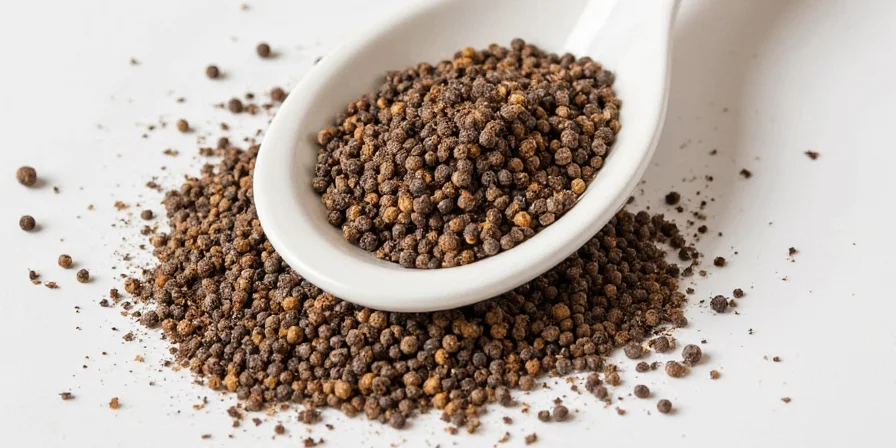
White ground pepper comes from the same plant as black pepper (Piper nigrum), but undergoes different processing that creates distinct flavor and visual properties. Here's what matters for your cooking:
- Black pepper = Unripe berries dried with skins on → stronger, sharper flavor with visible black specks
- White pepper = Ripe berries with skins removed through fermentation → milder, earthier flavor with no dark specks
When to use white pepper: Choose white pepper for light-colored dishes like cream sauces, mashed potatoes, or chicken dishes where black specks would be visually distracting. Use black pepper for most other applications.
White Pepper vs Black Pepper: Practical Differences You'll Notice
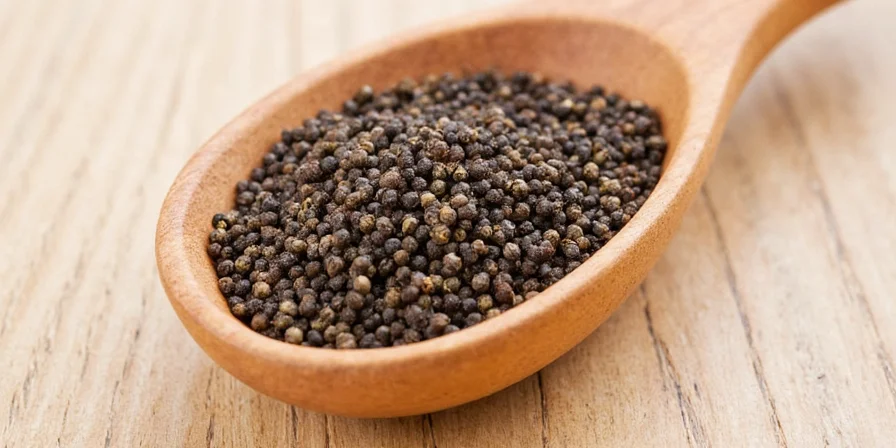
| Practical Difference | White Ground Pepper | Black Pepper |
|---|---|---|
| Best For | Cream sauces, light soups, mashed potatoes, fish, chicken dishes | Steaks, roasted vegetables, vinaigrettes, tomato-based dishes |
| Flavor Profile | Milder heat, earthier, more subtle | Sharper, more pungent, complex top notes |
| Visual Impact | No visible specks - maintains dish appearance | Dark specks visible in light-colored dishes |
| When to Add | Add early in cooking for full integration | Add toward end for maximum aroma impact |
| Common Substitution Ratio | Use 25% more white pepper to match black pepper's heat level | Use 25% less black pepper when substituting for white |
5 Simple Ways to Use White Pepper Like a Pro
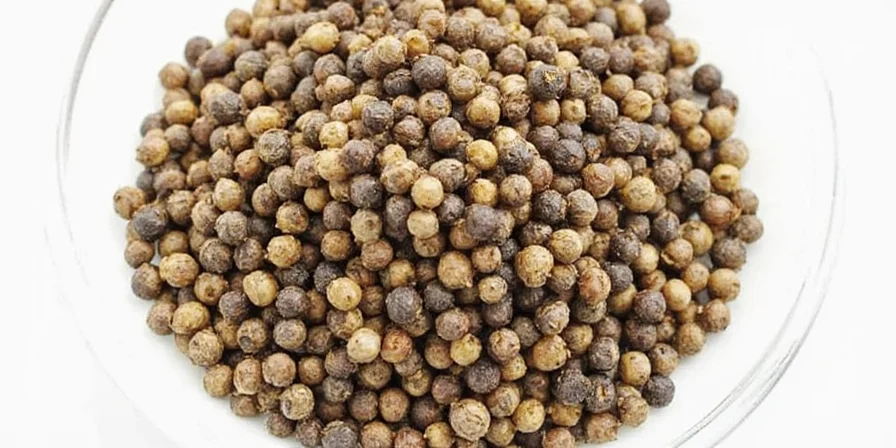
These practical applications work for everyday cooking:
- Creamy sauces: Add to béchamel or Alfredo sauce (1/8 tsp per cup) for seasoning without black specks. French chefs prefer this for visual perfection.
- Mashed potatoes: Mix into potato mash before serving - white pepper blends invisibly while black pepper creates distracting specks.
- Light soups: Use in chicken or vegetable broth-based soups where appearance matters. Add during last 5 minutes of cooking.
- Fish dishes: Sprinkle on poached white fish fillets just before serving for subtle heat that doesn't overpower delicate flavors.
- Light-colored salad dressings: Incorporate into mayonnaise-based dressings where black pepper would be visible.
How to Choose & Store White Pepper (Simple Guide)
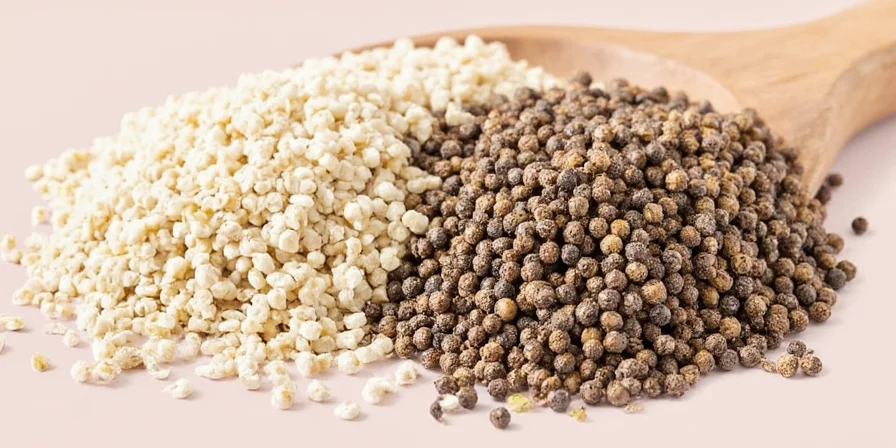
Follow these practical tips:
- Buy whole peppercorns: They stay fresh 4x longer than pre-ground. Grind only what you need using a pepper mill.
- Check processing method: Look for "fermented" on the label (not "bleached") for authentic white pepper flavor.
- Storage: Keep in an airtight container away from light and heat. Properly stored, whole peppercorns last 18-24 months.
- Freshness test: Rub between fingers - fresh white pepper has noticeable aroma. If barely scented, it's stale.
- Affordable option: Vietnamese white pepper offers best value for home cooking (Indonesian is premium but pricier).
White Pepper vs Black Pepper: Deep Dive (For Curious Cooks)
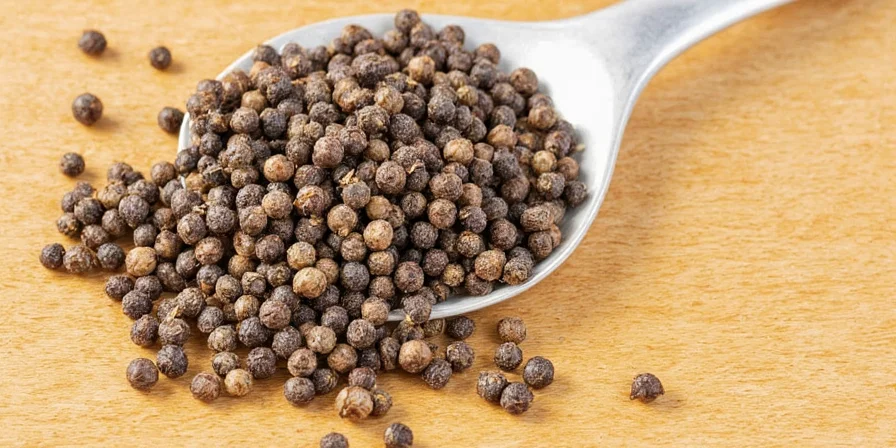
| Characteristic | White Ground Pepper | Black Pepper |
|---|---|---|
| Processing Method | Ripe berries fermented to remove outer layer | Unripe berries sun-dried with outer layer |
| Key Chemical Difference | Lower piperine (milder heat), higher sesquiterpenes | Higher piperine (sharper heat), dominant monoterpene alcohols |
| Heat Level (Compared) | Approximately 25% milder than black pepper | Standard reference point for pepper heat |
| Flavor Development | Gradual heat release, integrates seamlessly | Immediate pungency, distinct top notes |
| Why French Chefs Prefer It | Complements dairy without competing with nutmeg in classic sauces | Rarely used in traditional French mother sauces |
White Pepper FAQs (Quick Answers)
Why do chefs use white pepper instead of black in some dishes?
Chefs use white pepper in light-colored dishes like cream sauces and mashed potatoes because it provides seasoning without visible black specks. It also has a milder, earthier flavor that integrates better with delicate ingredients.
Can I substitute white pepper for black pepper?
Yes, but adjust quantities. Use about 25% more white pepper to match black pepper's heat level. Remember that white pepper works best in light-colored dishes where black specks would be visible.
Does white pepper taste different than black pepper?
Yes - white pepper has a milder, earthier flavor profile compared to black pepper's sharper, more complex heat. This difference comes from the processing method which removes different chemical compounds.
Why does some white pepper smell musty?
Poor quality white pepper can develop a musty odor from improper fermentation. Choose brands specifying 'controlled fermentation' to avoid this issue. Fresh white pepper should have a clean, earthy aroma.
Is white pepper healthier than black pepper?
White pepper contains about 30-40% less piperine than black pepper, reducing its bioavailability-enhancing effects. However, its fermentation process increases certain antioxidants. Both offer similar health benefits when used in normal cooking amounts.
When to Reach for White Pepper: Simple Decision Guide

Follow this simple rule: Use white pepper whenever visual appearance matters in light-colored dishes. For cream sauces, mashed potatoes, light soups, and delicate fish or chicken dishes, white pepper delivers seasoning without visual disruption. For nearly everything else, keep using your trusty black pepper.
When buying, choose whole fermented white peppercorns stored in opaque containers, and grind only what you need. Properly stored, it will maintain its subtle flavor for over a year - making it a worthwhile addition to any serious home cook's spice collection.

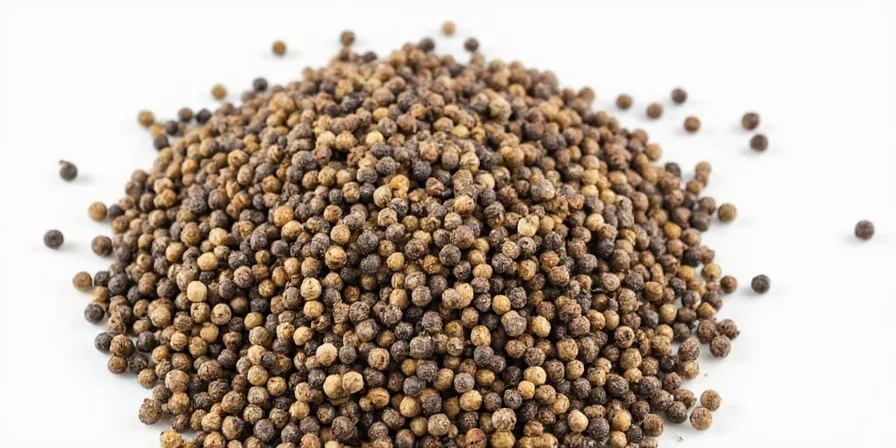









 浙公网安备
33010002000092号
浙公网安备
33010002000092号 浙B2-20120091-4
浙B2-20120091-4